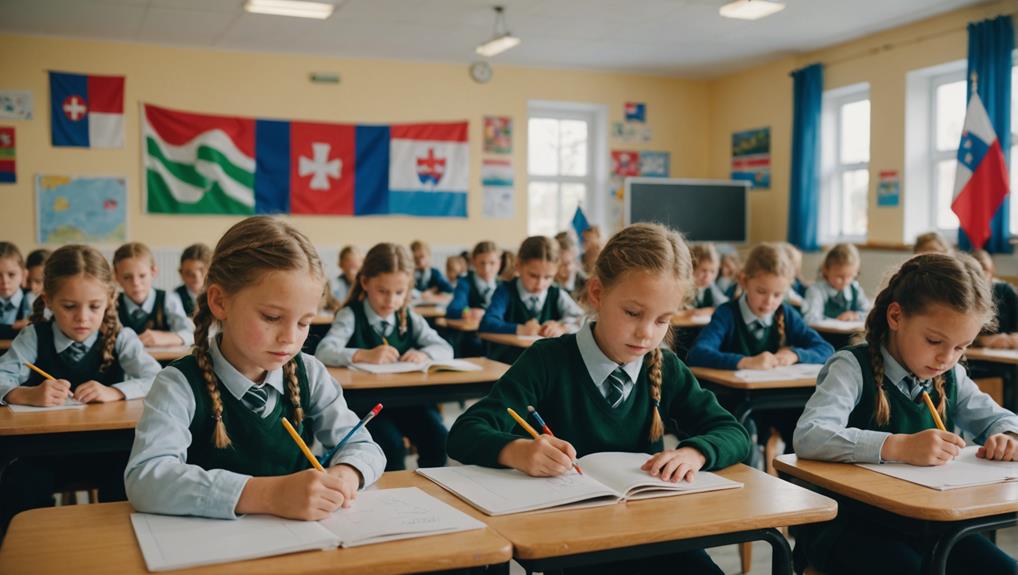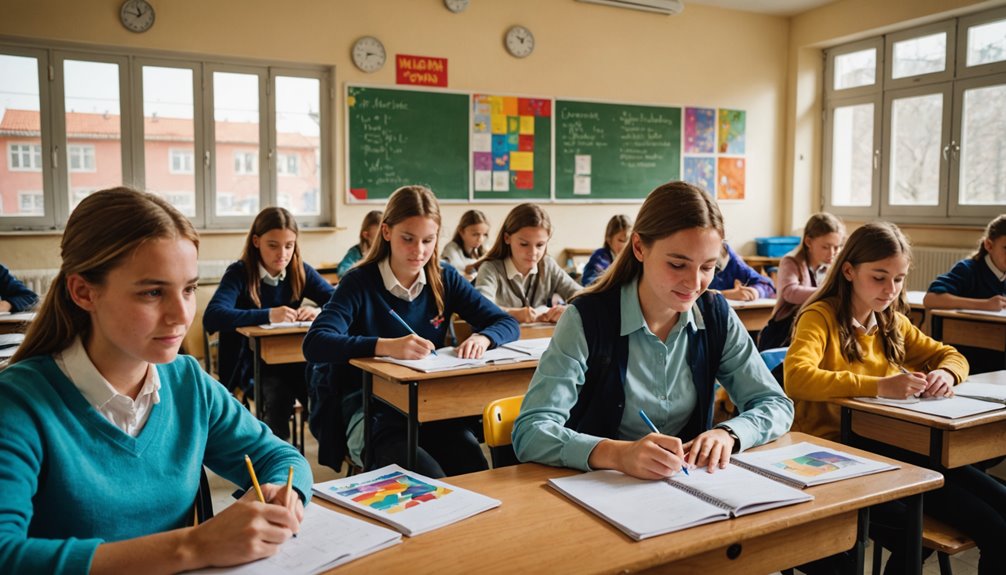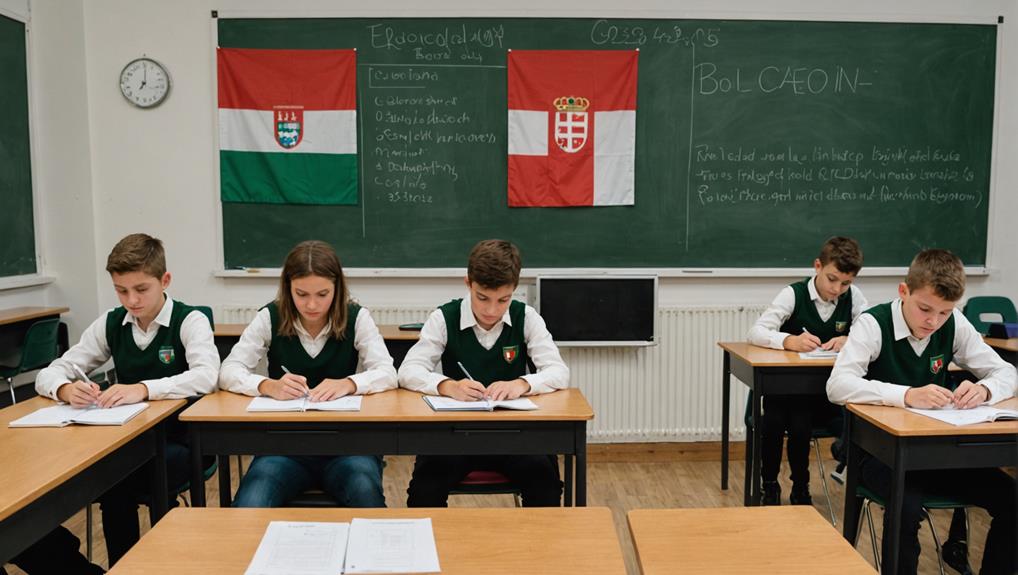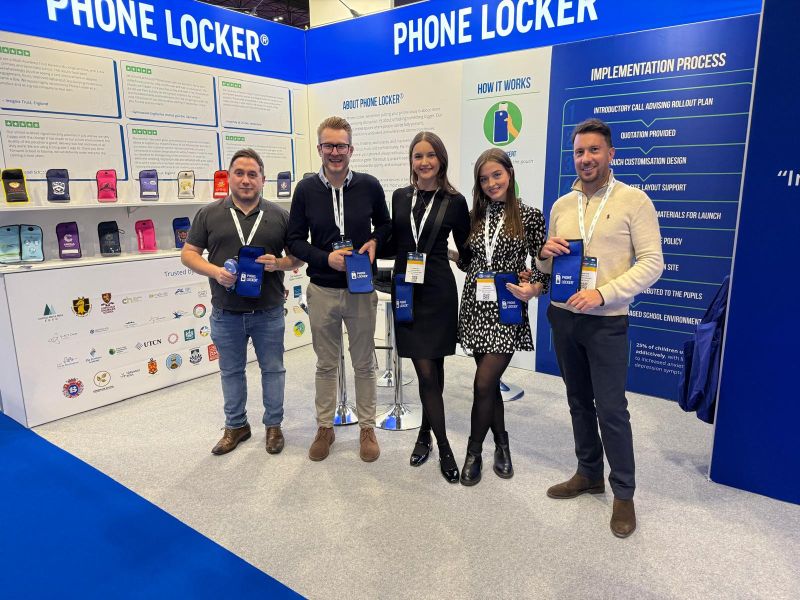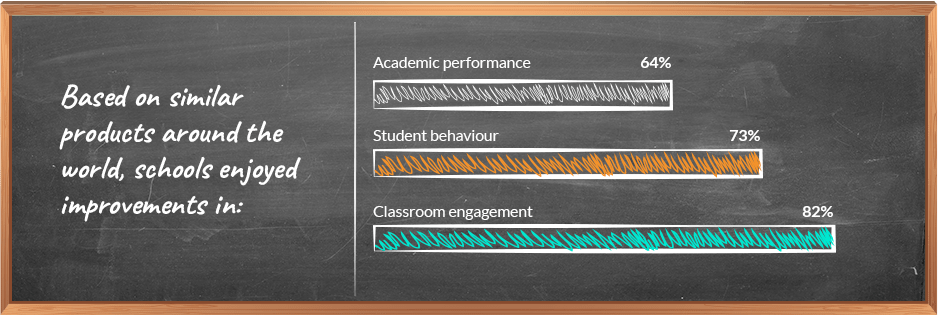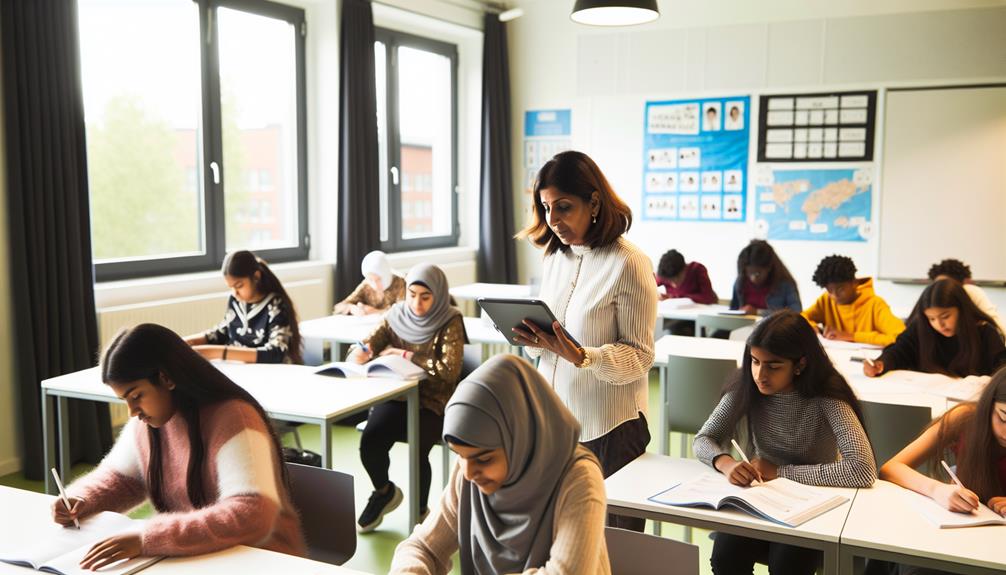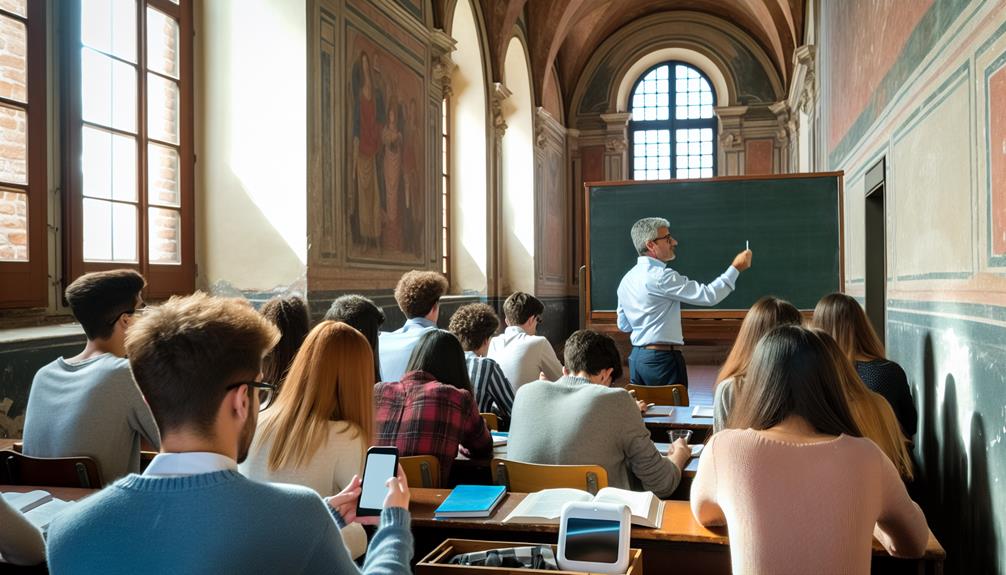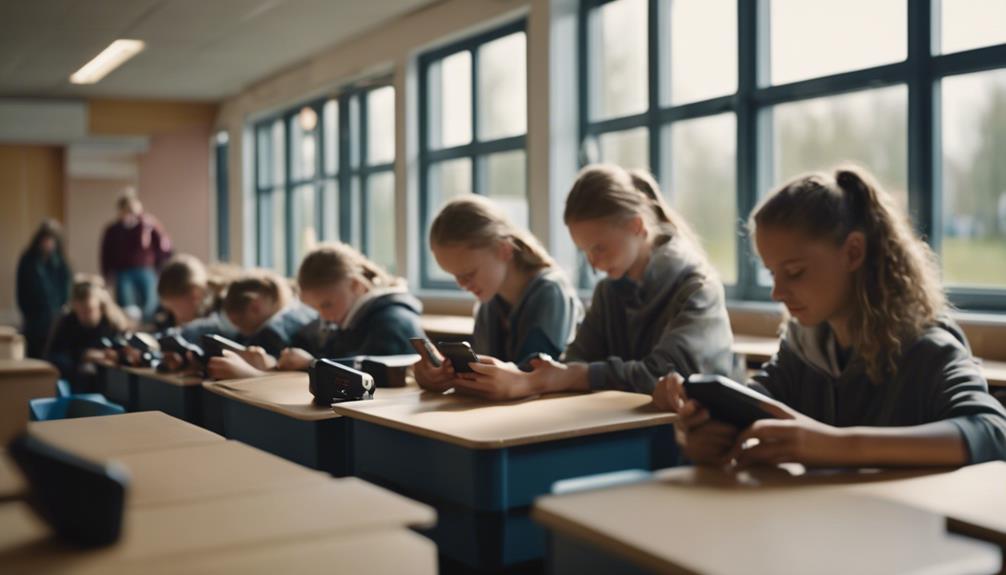Slovakia Bans Mobile Phones in Primary Schools
Slovakia’s recent ban on mobile phones in primary schools aims to improve student focus, educational outcomes, and mental well-being. This decision is influenced by evidence linking mobile phone use to reduced academic performance and impaired concentration. The ban seeks to address parental concerns about cyberbullying while fostering a balanced approach to technology use. Schools face significant enforcement challenges, requiring robust monitoring and effective communication strategies to secure community support. Public and expert reactions vary, with some highlighting implementation difficulties and others recognizing potential academic benefits. This policy aligns with similar initiatives in countries like France and Hungary, signaling a global shift toward prioritizing student well-being. Those interested might explore the complexities and impacts of such policies.
Key Takeaways
- Slovakia implements a mobile phone ban in primary schools to enhance student focus and academic performance.
- The ban addresses parental concerns about cyberbullying and aims to protect student mental well-being.
- Schools face enforcement challenges, requiring designated phone-free zones and robust monitoring systems.
- Public reactions vary, with supporters highlighting reduced distractions and critics concerned about emergency communication.
- Slovakia’s policy aligns with global trends prioritizing student well-being through regulated mobile phone use.
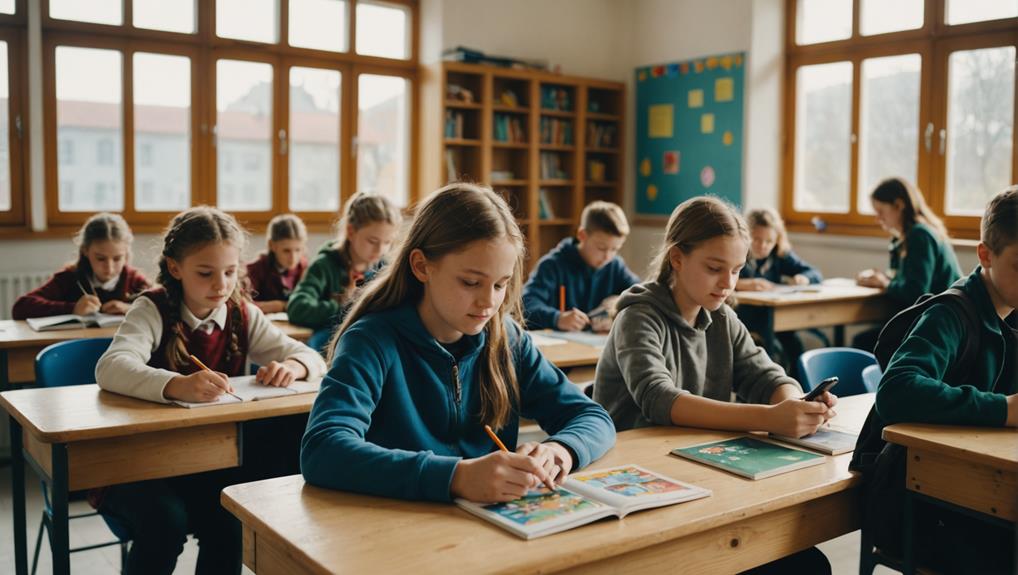
Overview of Slovakia’s Mobile Phone Ban
In early 2024, Slovakia implemented a nationwide ban on mobile phones in primary schools, aimed at reducing distractions and enhancing the learning environment. The ban is strictest for younger students—those in the first three years of primary school—where phones are completely prohibited during school hours, including breaks. For older students, there are limited exceptions, allowing teachers to authorize phone use strictly for educational purposes, under their supervision.
This policy stems from growing concerns over the negative impact of mobile phone use on academic performance and student well-being. Slovak officials have cited research showing that phones in classrooms can lower concentration and harm academic outcomes. Additionally, concerns about cyberbullying and reduced social interaction among students further motivated the decision.
While many support the ban as a way to foster a more focused and socially engaged school environment, some parents and educators have voiced concerns over how the ban will be enforced and whether it limits opportunities for students to develop digital literacy. Overall, Slovakia’s move adds to the ongoing global conversation about managing technology in educational settings.
Enforcement Measures for the Ban
To ensure effective enforcement of the ban, schools are exploring various measures. One approach includes storing devices in designated cabinets or physically collecting smartphones from students at the start of the day and returning them afterward. This method minimizes the opportunity for misuse during school hours, helping to create a more focused learning environment.
Another innovative solution involves the use of locking phone pouches, like Phonelocker pouches, which securely hold students’ devices until they are released by a teacher. These pouches prevent access to the phones during school hours while allowing for a more organized approach to managing device use. By implementing these strategies, schools aim to effectively balance safety, communication, and educational integrity.
Overall, these enforcement measures are essential to the success of the mobile phone ban, helping schools maintain discipline and support an atmosphere conducive to learning. As Slovakia takes this significant step, it joins a global trend of re-evaluating technology’s role in education and seeking effective methods to integrate it responsibly.

Reasons Behind the Ban
Slovakia’s decision to ban mobile phones in primary schools is driven by several key concerns about their impact on education and student well-being.
One of the primary reasons is the negative effect on academic performance. Slovak officials referenced research showing that mobile phones can significantly reduce students’ ability to focus, leading to poorer learning outcomes. Studies, such as those by the OECD, indicate that unregulated phone use in schools is associated with decreased concentration and lower academic results. The ban aims to eliminate these distractions, creating a more conducive environment for learning.
Another significant concern is the impact on mental health. Increased mobile phone use has been linked to anxiety, sleep disturbances, and social isolation in children. Slovak education authorities are particularly worried about how phones can disrupt children’s emotional development and contribute to feelings of loneliness. By restricting phone use, schools hope to promote healthier social interactions among students during school hours.
Moreover, there are growing issues with cyberbullying and inappropriate online behavior. By removing phones from the school environment, the government aims to reduce these incidents, fostering a safer and more positive atmosphere for students.
In sum, Slovakia’s mobile phone ban is based on a combination of educational, psychological, and social concerns, with the goal of improving student focus, well-being, and interpersonal relationships during school hours.
Benefits and Challenges of the Ban
Frequently, educational reforms like the mobile phone ban in Slovakian primary schools present both significant advantages and notable hurdles. While the ban aims to enhance academic performance and student well-being, it also encounters implementation obstacles and diverse reactions from stakeholders.
Benefits
The mobile phone ban in Slovakian primary schools offers several potential benefits, particularly in improving the educational environment and students’ well-being. One of the most significant advantages is enhanced focus during classes. By eliminating the distractions caused by smartphones, students are expected to concentrate better on lessons, which could lead to improved academic performance. This aligns with global research showing that students in phone-free environments tend to perform better academically.
Additionally, the ban fosters healthier social interactions. Without the constant presence of mobile phones, students are more likely to engage in face-to-face communication, leading to stronger peer relationships and a reduction in the social isolation that can result from excessive screen time. The absence of mobile devices during breaks and free time could also encourage more physical activity and traditional play, which is essential for young children’s development.
Another significant benefit is the potential reduction in cyberbullying and inappropriate online behavior. By restricting phone use during school hours, schools can minimize students’ exposure to harmful online interactions and protect them from potential abuse.
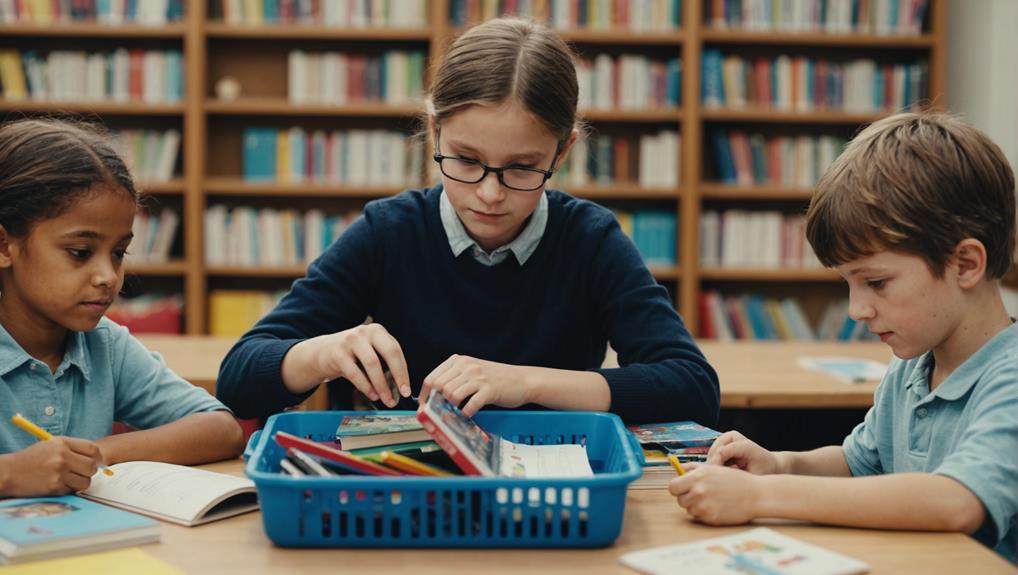
Challenges
Despite these benefits, the ban poses several challenges. One major concern is enforcement. Schools will need to ensure students comply with the new rules, which could create tension between teachers and students. Monitoring and managing compliance, particularly in older students who may be more resistant, could require additional resources and staff involvement.
There are also concerns from parents who feel that the ban may limit their ability to stay in touch with their children during the day. Some argue that phones are essential for safety and communication, especially in emergencies. Furthermore, critics suggest that the ban might hinder digital literacy, a key skill in the modern world. Students may lose valuable opportunities to learn how to use technology responsibly if it is completely banned during school hours.
Balancing these challenges with the intended benefits will be crucial for the success of the mobile phone ban in Slovakian schools.
Public and Expert Reactions
Amidst ongoing debates, the proposed mobile phone ban in Slovakian primary schools has elicited varied reactions from both the public and experts. Parental concerns primarily revolve around communication during emergencies, while others acknowledge the potential for improved academic impact. Supporters argue that the ban will reduce distractions, fostering an environment conducive to learning. However, some parents worry about the feasibility of ensuring students remain connected in urgent situations.
Student reactions are mixed, with some expressing a willingness to embrace the change, anticipating enhanced social interactions and focus during classes. Others, however, fear the loss of a familiar tool for leisure and connection.
Experts highlight implementation challenges, particularly the need for effective monitoring and enforcement without causing undue disruption. Teachers are pivotal in this process, tasked with balancing educational activities with the new restrictions.
The academic impact of the ban is a focal point of analysis, with evidence suggesting potential improvements in concentration and reduced instances of academic dishonesty.
Social interactions among students are expected to increase, with proponents of the ban suggesting that face-to-face communication may be revitalized, strengthening peer relationships and enhancing the overall school experience.
Comparisons to Global Trends
Slovakia’s mobile phone ban in primary schools aligns with similar initiatives worldwide as countries navigate the complexities of technology in education.
In France, a law enacted in 2018 prohibits mobile phone use in schools for children aged 3 to 15, aiming to foster a distraction-free learning environment and promote face-to-face interactions. Educators have reported positive outcomes, such as improved student focus and engagement.
Italy has also implemented restrictions on mobile phone use, with various regions banning or limiting devices in classrooms due to concerns over distractions and negative behavioral impacts. Schools that have adopted these measures often cite decreases in disciplinary issues and enhanced attentiveness.
Conversely, Denmark and Sweden take a more lenient stance, focusing on teaching responsible phone use rather than imposing strict bans. These countries incorporate technology into their curricula, promoting digital literacy alongside academic learning.
In Australia, the approach varies by state, allowing individual schools to establish their own policies regarding mobile phone use. This flexibility enables schools to tailor their rules to their specific environments while still addressing concerns about distraction and bullying.
Overall, Slovakia’s ban reflects a growing global trend to regulate mobile phone use in educational settings, with varying degrees of restriction based on different educational philosophies and contexts. The effectiveness of these policies continues to be a topic of discussion as educators seek the best ways to integrate technology into learning.
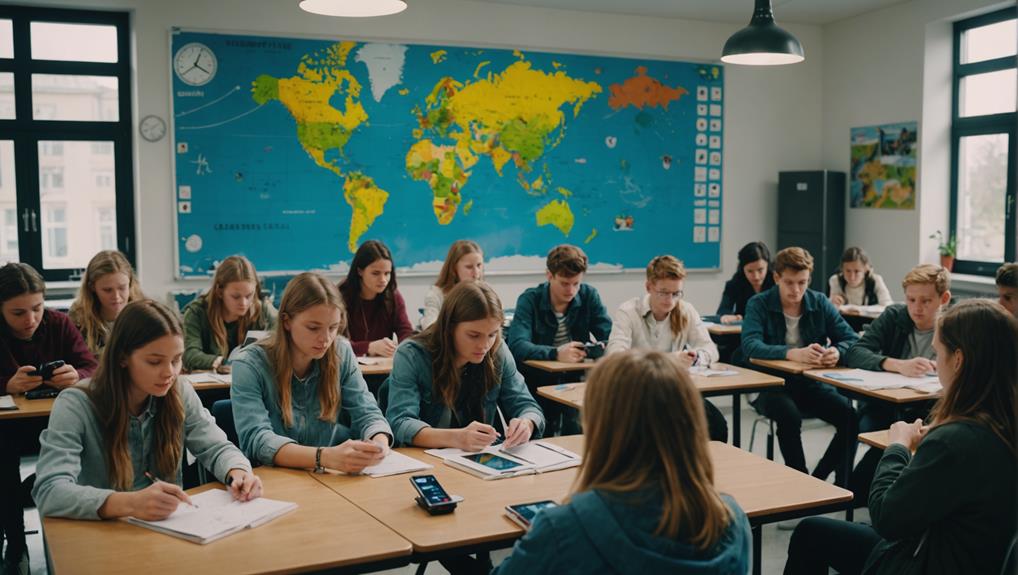
Frequently Asked Questions
The ban’s impact on students with health-related phone needs requires health accommodations to guarantee student well-being. Parent communication and tailored strategies could alleviate classroom distractions while preserving academic performance, balancing necessary technology use with educational objectives.
Technological alternatives will likely focus on educational benefits and minimizing classroom distractions through technology integration. Parental involvement is essential in supporting these efforts, enhancing student engagement, and ensuring innovative practices align with educational objectives.
Schools will improve emergency procedures through thorough staff training, guaranteeing effective student supervision. Safety drills will be regularly conducted, while parent communication systems will be optimized using alternative technologies to maintain connectivity and guarantee student safety.
In the labyrinth of classroom distractions, enforcement methods for mobile phone violations include parental responsibility for addressing privacy concerns. Student consequences may involve detention or phone confiscation, reinforcing discipline while ensuring privacy is respected.
Periodic reassessment plans for the ban’s effectiveness should integrate parent involvement, monitor academic performance, gather teacher perspectives on student behavior, and assess enhancements in social interactions, ensuring evidence-based adjustments foster an innovative and conducive learning environment.
Conclusion
The Slovakian government’s mobile phone ban in primary schools represents a strategic initiative aimed at enhancing educational outcomes and student well-being. Despite potential objections regarding adaptability and enforcement, evidence suggests that reducing mobile phone usage can notably enhance concentration and academic performance. The policy aligns with global trends prioritizing educational focus and social interaction over digital distractions. As schools implement phone-free zones, the ban underscores a commitment to creating an environment conducive to academic and social development, reflecting evidence-based educational practices.


